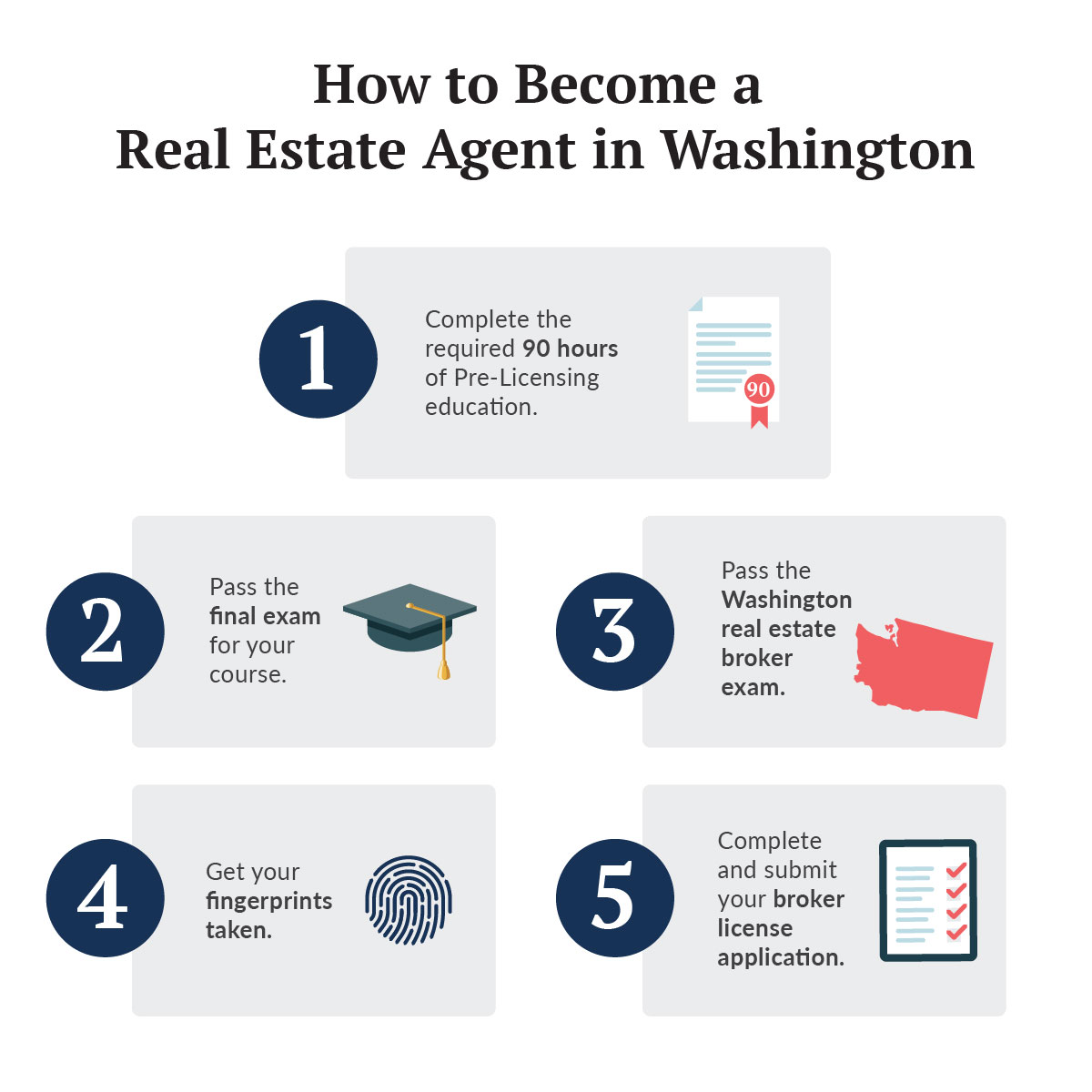
The term procuring cause refers to actions taken by real estate agents and brokers to facilitate a home sale. In most cases, the selling commission will be paid to the agent or broker who procured cause.
Procuring Cause in Real Estate
If a buyer works with multiple real estate agents or brokers during the home buying process, procuring cause issues can arise. This is particularly common with buyer-broker exclusive representation agreements, which could result in a dispute regarding procuring cause.
A Procuring Cause Definition
NAR's Arbitration Guidelines states that procuring causes must be based in a unbroken sequence of events that lead to a successful deal. Simply showing a property to a buyer is insufficient.
A hearing panel is usually appointed to resolve a dispute over procurement. It reviews the facts surrounding the realty transaction and determines whether or not the agent or broker was the procuring cause.

The panel must consider the nature and status of the real estate transaction; the roles and relationships of the parties; the initial contact with the client; the conduct of the broker or agent; continuity and breaks in the relationship between the seller and buyer; and other information.
What is Procuring Agency?
Procuring agency refers to the relationship between an agent and their client. This relationship is one that is based upon trust and mutually beneficial exchanges of services.
This type of relationship can be formed through any kind of communication that occurs between the two parties in the course of the real estate transaction, including email, phone calls, and text messages.
If the relationship is founded on trust, it can be considered a good-faith basis for compensation under procuring cause doctrine.
Procuring cause doctrine allows real estate agents to sue sellers for breach of contract if the sale or lease is not completed in full. Based on the facts and circumstances, damages may include a commission or interest as well as attorney's fees.

What is the Difference between a Procuring Cause or a Representation?
There are many differences between a representing cause and procuring cause. A procuring cause ploy is often used by real estate agents to get a client to sign a buyer-broker exclusive representation contract with them.
This does not necessarily mean that they can automatically claim a commission on any subsequent sale. Buyers may also change brokers during a transaction.
In any event, the procuring causes standard is a complex legal doctrine that can lead to significant financial losses for agents.
Although it can be challenging to apply the procuring causes doctrine, it is an important part law real estate. Brokers must adhere to this principle in order to avoid expensive litigation and disputes with clients over the payment for a real estate commission.
FAQ
Should I rent or own a condo?
If you plan to stay in your condo for only a short period of time, renting might be a good option. Renting lets you save on maintenance fees as well as other monthly fees. The condo you buy gives you the right to use the unit. The space is yours to use as you please.
How much does it take to replace windows?
The cost of replacing windows is between $1,500 and $3,000 per window. The total cost of replacing all of your windows will depend on the exact size, style, and brand of windows you choose.
What flood insurance do I need?
Flood Insurance protects you from flooding damage. Flood insurance helps protect your belongings, and your mortgage payments. Learn more about flood coverage here.
Should I use a mortgage broker?
A mortgage broker is a good choice if you're looking for a low rate. A broker works with multiple lenders to negotiate your behalf. Some brokers do take a commission from lenders. You should check out all the fees associated with a particular broker before signing up.
Statistics
- When it came to buying a home in 2015, experts predicted that mortgage rates would surpass five percent, yet interest rates remained below four percent. (fortunebuilders.com)
- Some experts hypothesize that rates will hit five percent by the second half of 2018, but there has been no official confirmation one way or the other. (fortunebuilders.com)
- Private mortgage insurance may be required for conventional loans when the borrower puts less than 20% down.4 FHA loans are mortgage loans issued by private lenders and backed by the federal government. (investopedia.com)
- This seems to be a more popular trend as the U.S. Census Bureau reports the homeownership rate was around 65% last year. (fortunebuilders.com)
- The FHA sets its desirable debt-to-income ratio at 43%. (fortunebuilders.com)
External Links
How To
How to Manage A Rental Property
Although renting your home is a great way of making extra money, there are many things you should consider before you make a decision. These tips will help you manage your rental property and show you the things to consider before renting your home.
Here are some things you should know if you're thinking of renting your house.
-
What are the first things I should consider? You need to assess your finances before renting out your home. If you have any debts such as credit card or mortgage bills, you might not be able pay for someone to live in the home while you are away. Check your budget. If your monthly expenses are not covered by your rent, utilities and insurance, it is a sign that you need to reevaluate your finances. ), it might not be worth it.
-
How much does it cost to rent my home? It is possible to charge a higher price for renting your house if you consider many factors. These factors include location, size, condition, features, season, and so forth. You should remember that prices are subject to change depending on where they live. Therefore, you won't get the same rate for every place. Rightmove estimates that the market average for renting a 1-bedroom flat in London costs around PS1,400 per monthly. This means that your home would be worth around PS2,800 per annum if it was rented out completely. It's not bad but if your property is only let out part-time, it could be significantly lower.
-
Is it worth the risk? You should always take risks when doing something new. But, if it increases your income, why not try it? You need to be clear about what you're signing before you do anything. You will need to pay maintenance costs, make repairs, and maintain the home. Renting your house is not just about spending more time with your family. You should make sure that you have thoroughly considered all aspects before you sign on!
-
Are there any benefits? There are benefits to renting your home. Renting your home is a great way to get out of the grind and enjoy some peace from your day. No matter what your choice, renting is likely to be more rewarding than working every single day. And if you plan ahead, you could even turn to rent into a full-time job.
-
How do you find tenants? Once you've decided that you want to rent out, you'll need to advertise your property properly. Listing your property online through websites like Rightmove or Zoopla is a good place to start. Once you receive contact from potential tenants, it's time to set up an interview. This will allow you to assess their suitability, and make sure they are financially sound enough to move into your house.
-
How can I make sure that I'm protected? If you fear that your home will be left empty, you need to ensure your home is protected against theft, damage, or fire. You will need insurance for your home. This can be done through your landlord directly or with an agent. Your landlord will often require you to add them to your policy as an additional insured. This means that they'll pay for damages to your property while you're not there. This doesn't apply to if you live abroad or if the landlord isn’t registered with UK insurances. You will need to register with an International Insurer in this instance.
-
Even if your job is outside the home, you might feel you cannot afford to spend too much time looking for tenants. But it's crucial that you put your best foot forward when advertising your property. A professional-looking website is essential. You can also post ads online in local newspapers or magazines. Additionally, you'll need to fill out an application and provide references. Some people prefer to do everything themselves while others hire agents who will take care of all the details. You'll need to be ready to answer questions during interviews.
-
What happens once I find my tenant If you have a lease in place, you'll need to inform your tenant of changes, such as moving dates. Otherwise, you can negotiate the length of stay, deposit, and other details. Remember that even though you will be paid at the end of your tenancy, you still have to pay utilities.
-
How do I collect my rent? When it comes time for you to collect your rent, check to see if the tenant has paid. You'll need remind them about their obligations if they have not. You can subtract any outstanding rent payments before sending them a final check. You can always call the police to help you locate your tenant if you have difficulty getting in touch with them. The police won't ordinarily evict unless there's been breach of contract. If necessary, they may issue a warrant.
-
How can I avoid potential problems? Although renting your home is a lucrative venture, it is also important to be safe. Consider installing security cameras and smoke alarms. You should also check that your neighbors' permissions allow you to leave your property unlocked at night and that you have adequate insurance. You should never allow strangers into your home, no matter how they claim to be moving in.